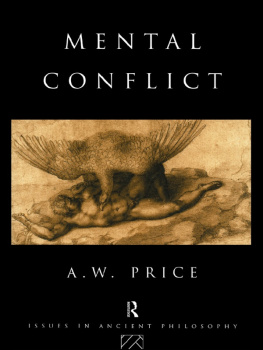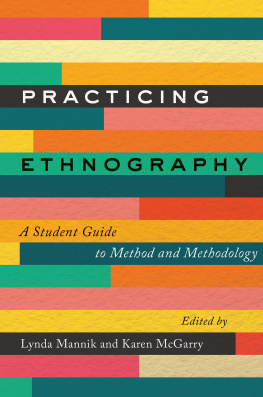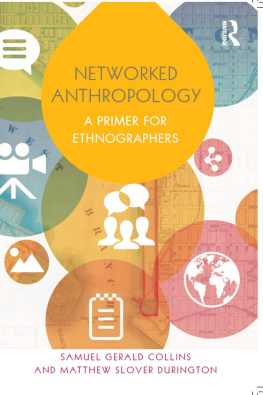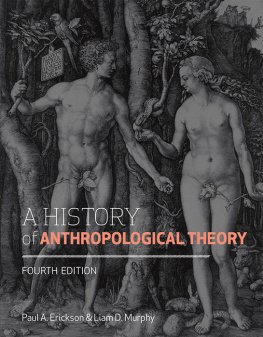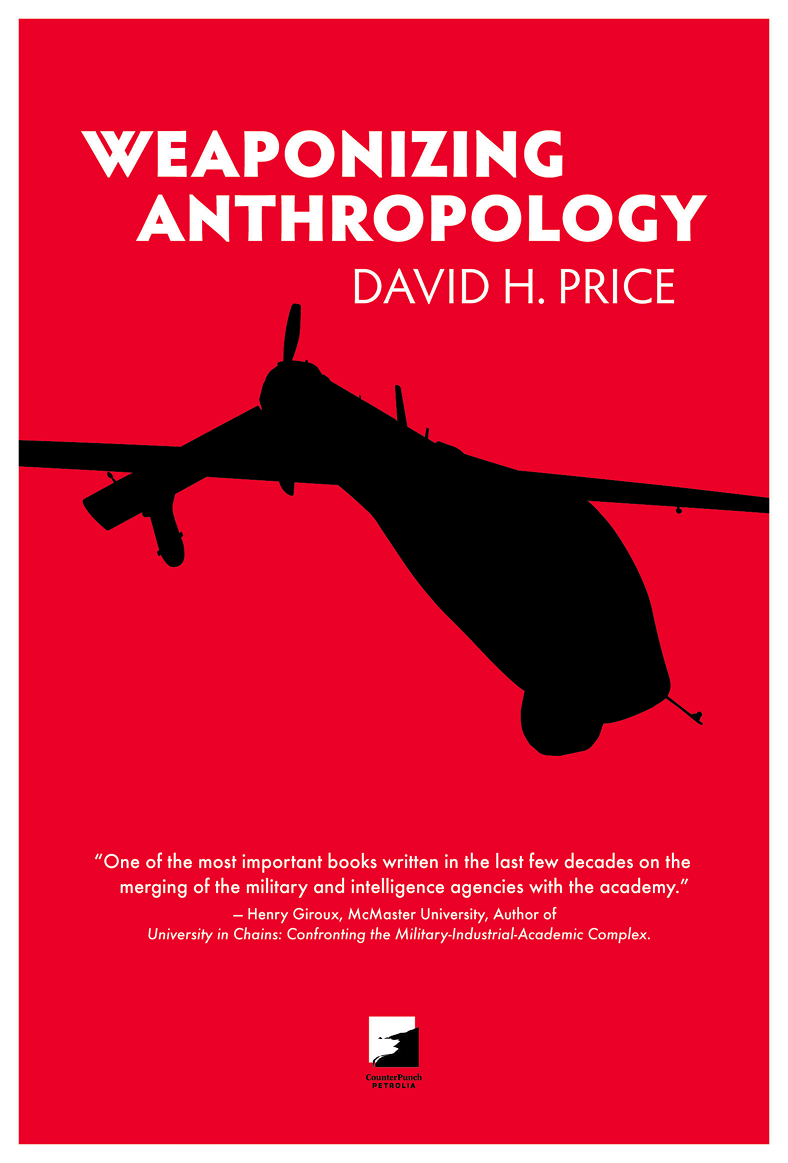Dedication
For Laura Nader, who teaches anthropologists to study up and confront power; and who taught me that critics have to work harder than those aligned with power.
Introduction: Anthropologys Military Shadow
Just as it was becoming pass to remark on anthropologys status as colonialisms wanton stepchild, George Bushs Terror War rediscovered old militarized uses for culture, and invigorated new modernist dreams of harnessing anthropology and culture for the domination of others. Because I began in the early 1990s using the Freedom of Information Act, interviews, and archival research to document American anthropologists interactions with military and intelligence agencies, by the time the post-9/11 push by the Pentagon and CIA to again use anthropological knowledge as tools for intelligence, warfare and counterinsurgency, I had a decent head start on documenting and thinking about some of this history. By the time America got its terror war on, I had already documented the details of how this worked in the past, and had thought about the core of the ethical, political and theoretical fundamentals of a critical approach to questions relating to the weaponization of anthropology.
But beyond my work on the ways that McCarthyism limited critical political debates in the 1950s, this head start offered little preparation for the wave of American jingoistic support for all things military and CIA as the nation willfully forgot the CIAs past involvement in torture, illegal arms deals, assassinations, undermining foreign democratic movements not to its liking, and embraced new forms of militarization as if this past had nothing to do with the rise of anti-American militarism around the globe.
Todays weaponization of anthropology and other social sciences has been a long time coming, and post-9/11 Americas climate of fear coupled with reductions in traditional academic funding provided the conditions of a sort of perfect storm for the militarization of the discipline and the academy as a whole. While all societies have links between the production and use of knowledge and larger economic and political structures, in the United States, the structural desires and holes that anthropological knowledge are desired to fill have been apparent for at least the past century.
Anthropology has always been funded to ask certain types of questions, or to know certain types of things: sometimes this has meant that there were more funds available to study the languages and cultures of specific geographic regions, in other times this meant entire theoretical approaches were fundable (like the simplistic culture and personality studies of the post war period, used to study our enemies at a distance), while others (critical Marxism, ca. 1952), were not. But even while the directions taken by anthropologists were frequently steered in general directions by the selective availability of funds, this arrangement allowed for some great variations in approaches or areas of study. But the post-9/11 world brought new variations on these old themes where a new form of the National Security State now wanted to cherry-pick individuals early in their careers and secretly place them in departments even while they maintained secret relationships and contacts with the CIA and other agencies. As the chapters on Minerva and the Pat Roberts Intelligence Scholars Programs argue, these new initiatives are built out of a recognition that military and intelligence agencies are ill-prepared to confront the issues and problems raised first by Bushs Terror Wars, and then Obamas Counterinsurgency Wars. Instead of freely funding social scientists to conduct research of their own choosing, the government now funds academics to think in increasingly narrow institutional ways ways that are institutionally linked to the damaging narrow ways that the Pentagon, CIA and State already approach these problems.
As others have pointed out, while World War I was the Chemists War and World War II the Physicists War, the current wars with their heavy reliance on the cultural knowledge needed for counterinsurgency and occupation are envisioned by many Pentagon strategists as the Anthropologists Wars; yet many in Washington seemed truly surprised at the push-back from anthropologists upon news of the formation of Human Terrain Teams and other efforts to adapt anthropology for counterinsurgency and asymmetrical warfare.
As military campaigns shift away from wars between states, to wars of quick conquest and grueling endless occupations of regions identified with ethnic or tribal groups rather than national boundaries, the needs for anthropological knowledge and skill sets grow. The needs for on-the-ground cultural knowledge, linguistic competence, knowledge of local customs, traditional symbols and culture history loom large, but so far, the American military clearly misunderstands just how much difference cultural competence could make in hiding the nakedness of American mercenary ventures. But the military also misunderstand what elements of anthropology they can and cant meaningfully use. Much of this confusion is exacerbated by the anthropologists who often misrepresent the discipline and its skill sets as they sell their wares to an eager military hungry for answers.
There is an inherent irony in the militarys recurrent desires to acquire and weaponize anthropology. The military does not understand that anthropology is not just a product: when practiced ethically, anthropology can be transformative. Anthropologists can come to have rich understandings not only of the people they live with but of the larger processes governing the warfare that desires to consume anthropological knowledge; and the intellectual, personal and professional loyalties of anthropologists engaged in such transformative processes therefore often tie them to the communities they study.
It is because of these inherent relationships that the military cant easily have anthropology for counterinsurgency. I dont mean cant in some sort of defiant way I mean that (despite a history of efforts to harness anthropology for such ends) the processes of using anthropology to subvert political movements is very unanthropological. While the military can hire people with anthropology degrees, read our work, steal it without attribution (as they did in their new COIN manual), republish our writings in classified forms, and use our methodsthey can and have done all of these things: but they are getting something less than anthropology. Given the inherent sympathies that emerge from anthropologists process of participant observation one of two things will happen: either these counterinsurgent-anthropologists will psychologically dissociate themselves from their betrayal of those they study for counterinsurgency telling themselves that they are protectors not subvertors; or the process of ethnographic identification will lead them to redirect their own loyalties from those of their military masters to those they study. One outcome is something less than anthropology, the other something more than the military bargains for.
Its not that we live in a universe where those who live with the others anthropologists study are transformed in ways that make it impossible for anthropologists to betray them or their interests (as if knowing such interests were somehow objectively clear); but it also isnt that we live in a universe where something like this cant happen. Perhaps this explains why even under current conditions in which anthropology graduate students sometimes graduate with debt loads that used to be associated with Medical School, there still remains only a small handful of anthropologists succumbing to the outrageous fortunes being paid to those who will overlook the obvious ethical and political problems of working for Human Terrain Teams. Today, out of the over four hundred Human Terrain Systems employees, less than eight have advanced anthropology degrees.



